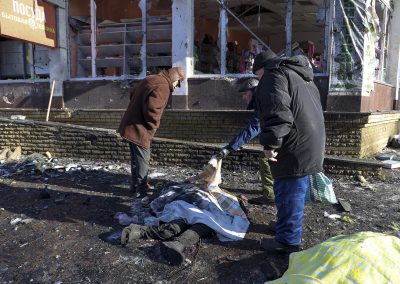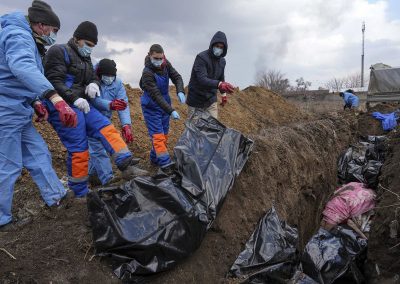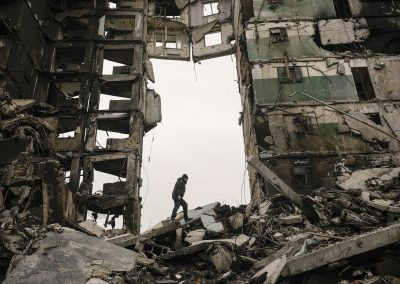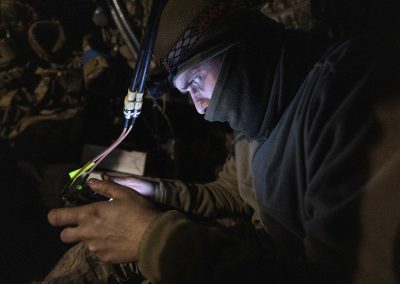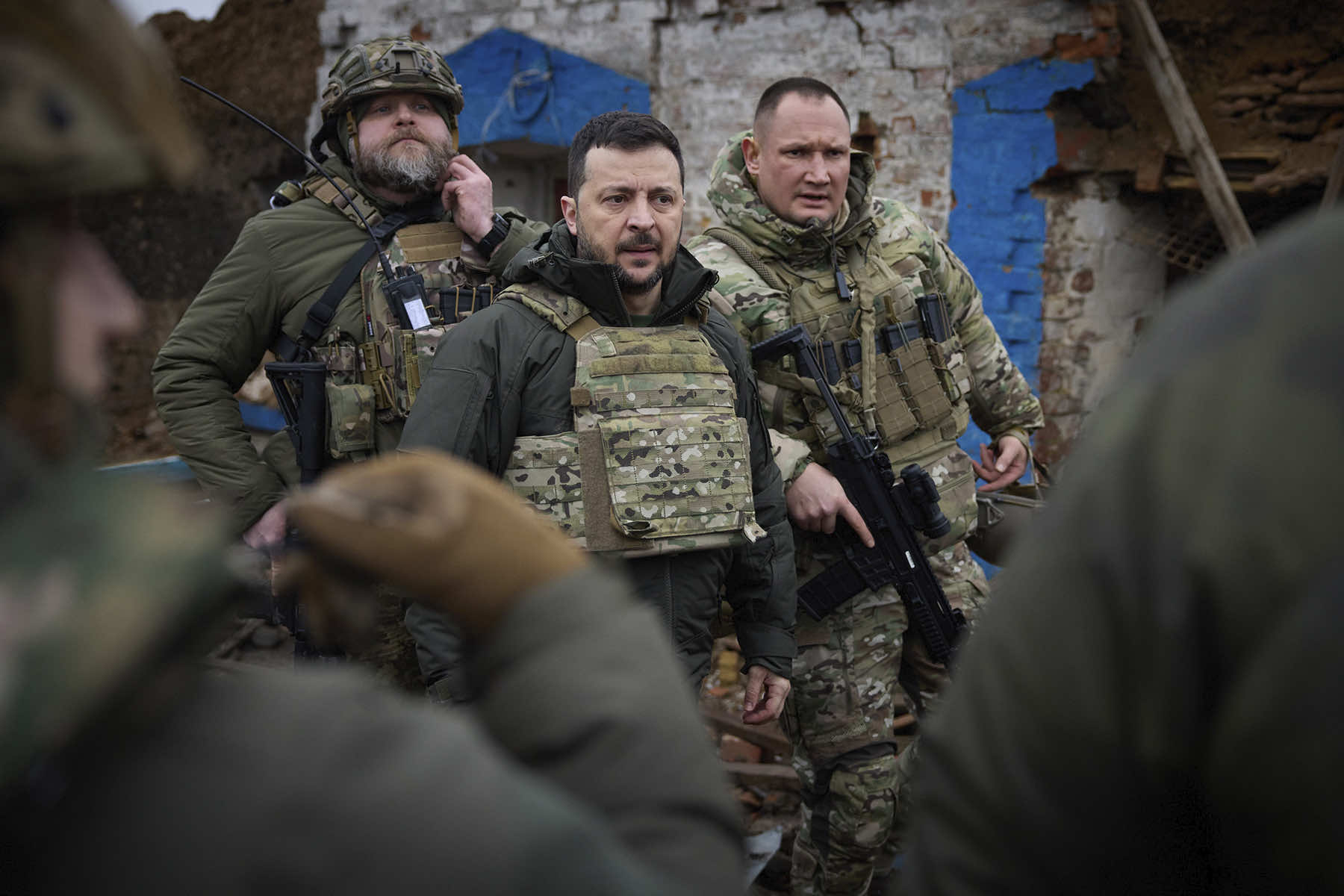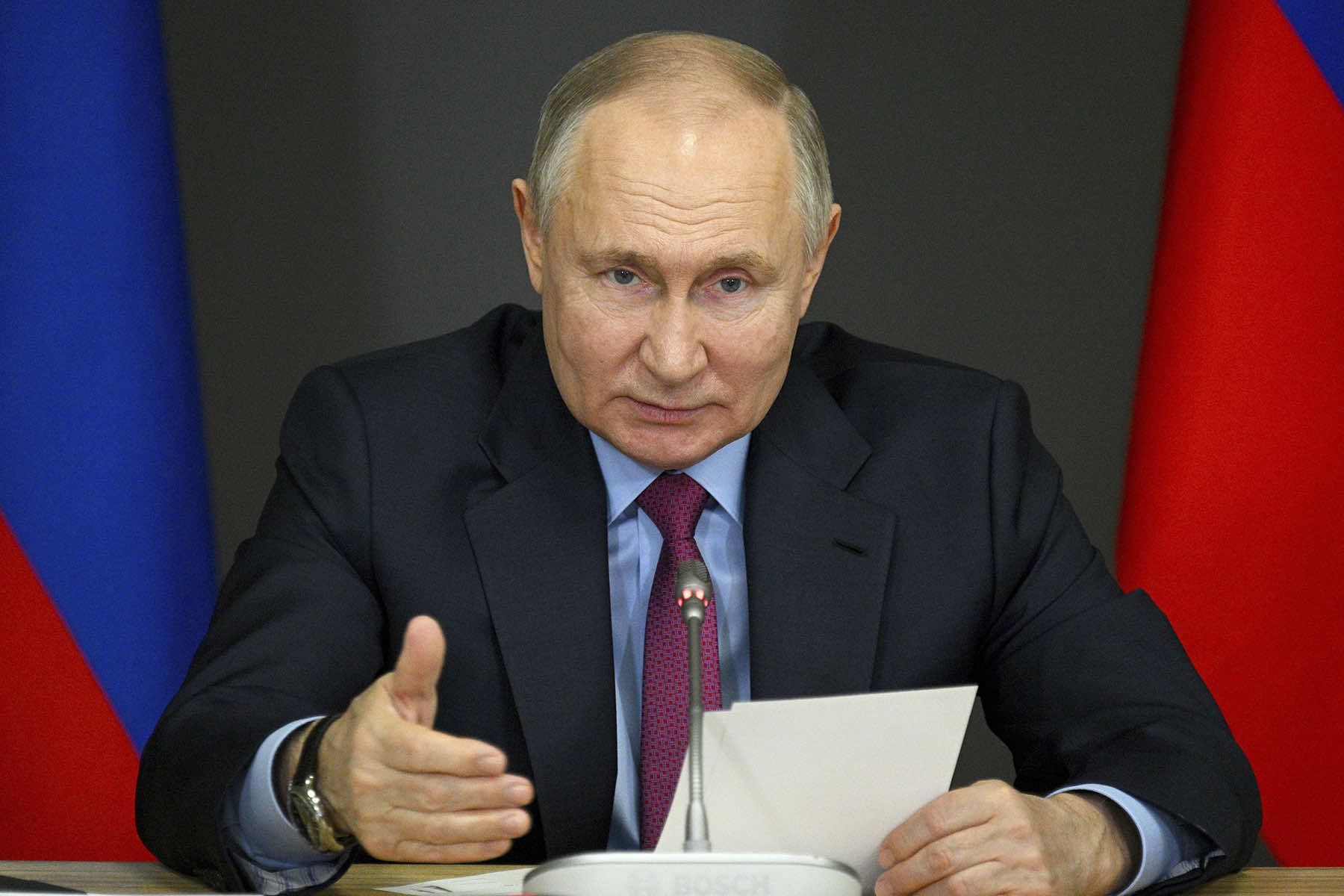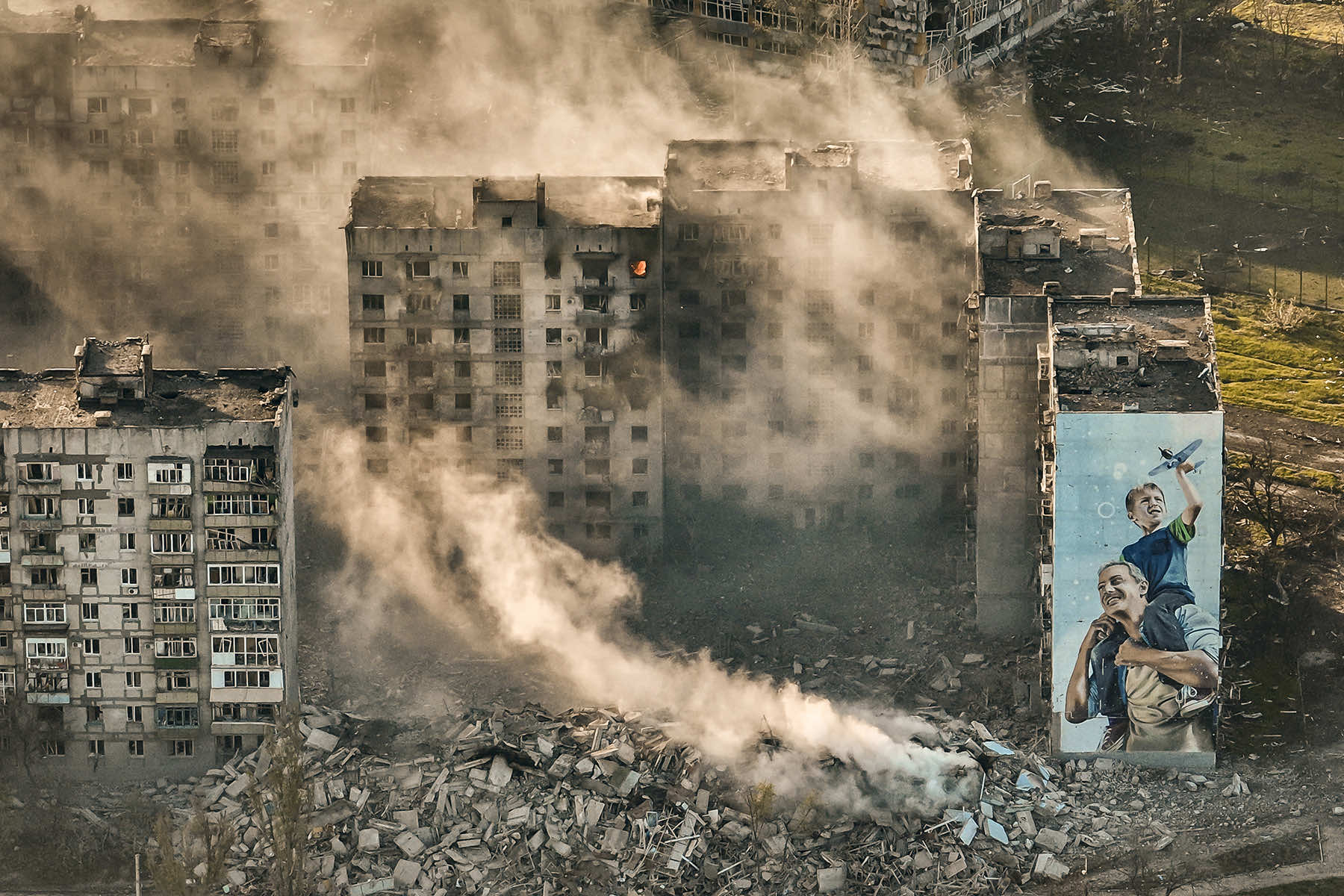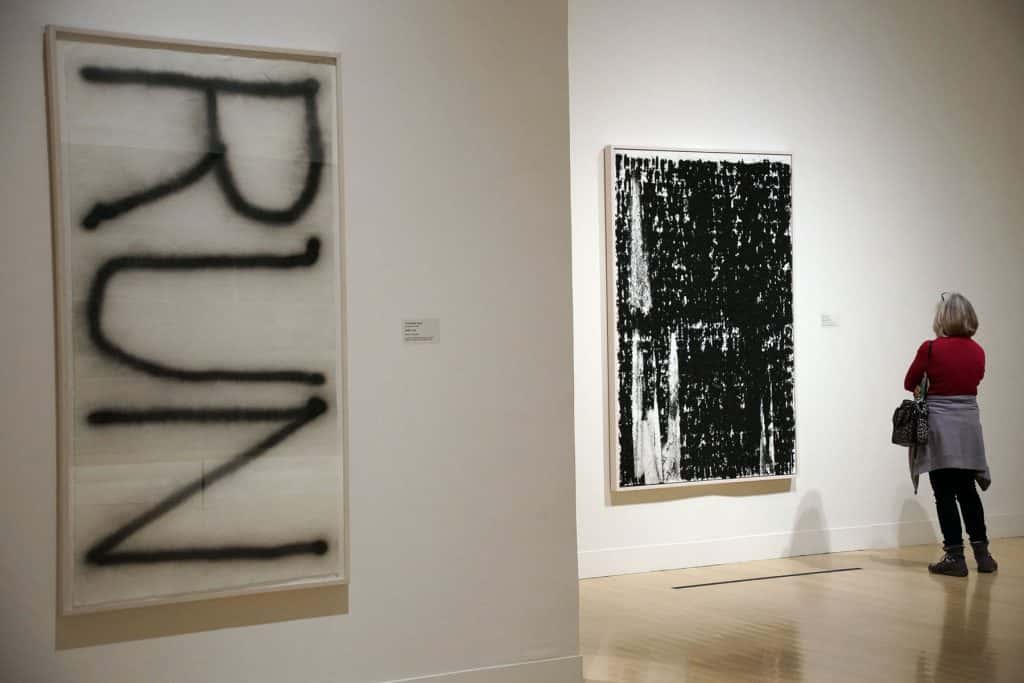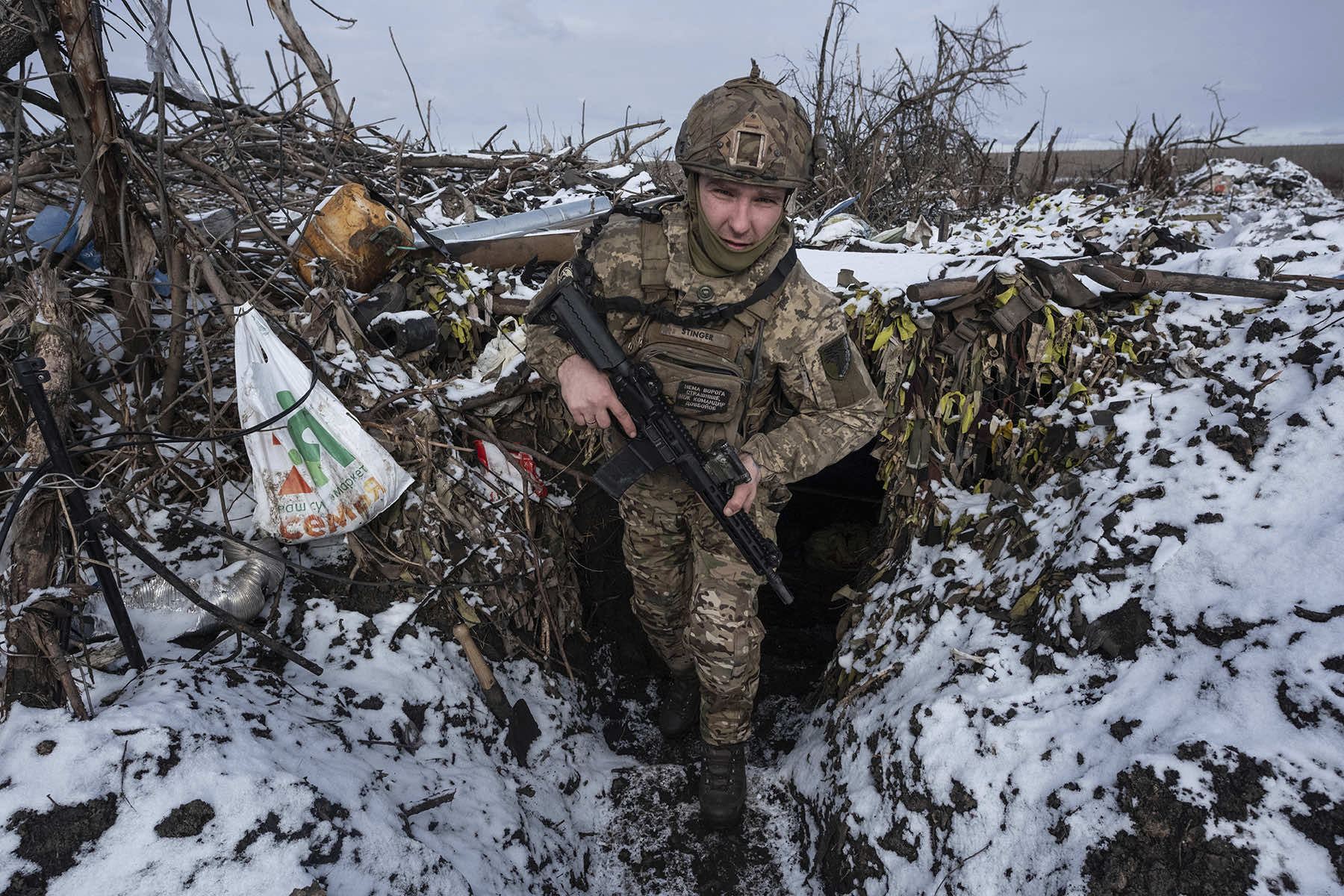
Delays in weapons deliveries from Western allies to Ukraine are opening a door for Russian battlefield advances, said Ukrainian President Volodymyr Zelenskyy, making the fight “very difficult” along parts of the front line where the Kremlin’s forces captured a strategic city last weekend ahead of the war’s two-year anniversary.
Zelenskyy and other officials have often expressed frustration at the slowness of promised aid deliveries, especially since signs of war fatigue have emerged.
European countries are struggling to find enough stocks to send to Kyiv, and U.S. help worth $60 billion is stalled over political differences.
The MAGA Republican faction within the House of Representatives, blinded by its allegiance to the criminally indicted ex-President Donald Trump’s policies and ideology, has used its position to hold hostage funding for Ukraine.
Originally tied to issues of border security, the group eventually rejected a bipartisan deal that delivered much of what they called for – because of instructions from Trump. With the hope of being re-elected president in 2024 to avoid legal accountability for his multiple fraud charges, Trump publicly admitted that he wanted to inflate the border problem as an election issue for his corrupt campaign strategy.
That strategy appears to be playing into the hands of Russian President Vladimir Putin, who has been a benefactor to Trump.
Even so, more help is heading Ukraine’s way, as Sweden announced on February 20 its biggest aid package so far and Canada said it was expediting the delivery of more than 800 drones.
Zelenskyy, in his daily video address on February 19, said Russia has built up troops at some points along the 930-mile front line, apparently aiming to pounce on any perceived defensive weaknesses.
“They (the Russians) are taking advantage of delays in aid to Ukraine,” he said after visiting the command post in the area of Kupiansk, in the northeastern Kharkiv region, on February 19.
He said Ukrainian troops keenly felt a shortage of artillery, air defense systems and long-range weapons.
Ukrainian forces withdrew from the strategic eastern city of Avdiivka at the weekend, where they had battled a fierce Russian assault for four months despite being heavily outnumbered and outgunned.
But Oleksiy Danilov, head of Ukraine’s National Security and Defense Council, said that while the situation on the battlefield is hard, especially due to a lack of ammunition, the situation on the eastern front is not catastrophic.
“We fight and will continue to fight,” he told news outlet Ukrainska Pravda. “We have only one request to our partners: to help with weapons, with ammunition, and with air defense.”
He claimed that Russia racked up heavy losses of troops and equipment in the fight for bombed-out Avdiivka. His claim could not be independently verified.
Zelenskyy said talks with foreign partners are focusing on how to “resume and extend” support.
Sweden, which is poised to join NATO, said on February 20 it will donate military aid to Ukraine worth $681 million. That includes 30 boats, some of which are fast and powerful military assault craft, and underwater weapons.
The deal also includes artillery ammunition, Leopard tanks, shoulder-borne anti-aircraft defense systems, anti-tank missiles, grenade launchers, hand grenades and medical transport vehicles, as well as underwater drones and diving equipment.
“By supporting Ukraine, we are also investing in our own security,” Defense Minister Pål Jonson told a news conference in Stockholm. “If Russia were to win this terrible war, we would have significantly greater security problems than we have today.”
The Canadian government said on February 19 it will dispatch more than 800 drones to Ukraine starting as early as this spring. They are part of a previously announced $370 million in military help for Ukraine.
Ukraine last year received $42.5 billion from foreign partners, of which $11.6 billion was in non-repayable grant aid, Ukraine’s Ministry of Finance said on February 20.
The grant assistance was provided by the U.S., Japan, Norway, Germany, Spain, Finland, Switzerland, Ireland, Belgium, and Iceland, it said. The U.S. provided the biggest amount of non-repayable grant aid, with $11 billion.
Long-term concessional financing amounted to $30.9 billion, which included loans from the European Union ($19.5 billion), the International Monetary Fund ($4.5 billion), Japan ($3.4 billion), Canada ($1.8 billion), the U.K. ($1 billion), the World Bank ($660 million) and Spain ($50 million).
Meanwhile, Ukraine shot down all 23 Shahed drones that Russia launched on February 19 over various regions of the country, the country’s air force said. Air force spokesman Yurii Ihnat said Russian aircraft activity had dropped off after Ukraine recently shot down a number of enemy warplanes. The air force commander, Mykola Oleschuk, said on February 19 that his troops destroyed Su-34 and Su-35 bomber jets. Over the weekend he said that other Russian jets were shot down.

